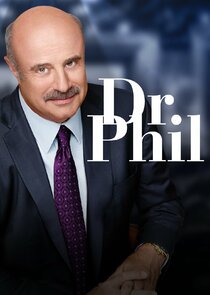For years, the Dr. Phil Show has captivated audiences with its dramatic episodes and emotional revelations. Hosted by Dr. Phil McGraw, a well-known television personality and author, the show tackles a wide range of issues from family disputes to personal struggles. However, as the entertainment value of the program increases, questions arise about the authenticity of its content. Is it all real, or is there more to the story than meets the eye?
Amidst the drama and excitement, some viewers have begun to question whether the Dr. Phil Show is genuinely focused on helping people or if it's merely staged for entertainment purposes. The line between reality and fiction becomes blurred when sensationalism takes center stage. In this article, we delve into the truth behind the Dr. Phil Show, examining claims made by critics and fans alike.
Dr. Phil: A Closer Look at His Credentials
Dr. Phil McGraw, an American television personality and author, is best known for hosting the talk show Dr. Phil. With a doctorate in clinical psychology from the University of North Texas, he brings a professional background to his role as a television host. Despite his academic qualifications, some skeptics question whether his expertise translates effectively into the world of television. While his credentials are legitimate, the context in which they're applied often raises eyebrows among critics.
The transformation from a clinical psychologist to a television entertainer involves significant changes in approach and methodology. On the Dr. Phil Show, the emphasis shifts from traditional therapeutic practices to creating engaging content that resonates with a broad audience. This shift sometimes leads to concerns about the ethical implications of televising sensitive personal issues. As a result, viewers may perceive the show as less about therapy and more about spectacle.
In response to these criticisms, supporters argue that Dr. Phil's platform provides valuable exposure to important topics that might otherwise go unnoticed. By leveraging his television presence, he aims to educate and inspire change in viewers' lives. Whether this mission aligns with traditional psychological practices remains a topic of debate among experts and enthusiasts alike.
The Authenticity Debate: Fact vs Fiction
One of the most common criticisms leveled against the Dr. Phil Show is the accusation that its episodes are scripted or overly dramatized for effect. Fans and critics alike have expressed doubts about the authenticity of the interactions seen on screen. Some claim that the show's producers manipulate situations to create more compelling narratives, raising questions about the integrity of the program.
Reality stars who have appeared on the show have openly admitted to feeling pressured to perform in ways that enhance the drama. These accounts suggest that the line between genuine human experiences and manufactured television moments can become obscured. For many viewers, this blurring of boundaries makes it difficult to discern what is truly real and what has been fabricated for entertainment purposes.
Despite these concerns, proponents of the show argue that while certain elements may be enhanced for dramatic effect, the core issues addressed remain valid and impactful. They contend that the show's ability to highlight critical social problems outweighs any potential drawbacks associated with its production techniques. Ultimately, the debate over authenticity continues to fuel discussions among both supporters and detractors of the Dr. Phil Show.
Ethical Concerns Surrounding the Dr. Phil Show
Beyond questions of authenticity, ethical considerations also play a significant role in evaluating the Dr. Phil Show. Critics frequently point out that televising deeply personal and often traumatic experiences could potentially harm participants rather than help them. The lack of privacy and control over how their stories are presented adds another layer of complexity to the situation.
Some former guests have spoken out about feeling exploited or misled during their appearances on the show. They describe instances where promises of support and guidance were not fulfilled, leaving them emotionally vulnerable and disillusioned. Such testimonies raise serious concerns about the ethical responsibilities of producers and hosts in handling sensitive material.
On the other hand, defenders of the show emphasize its commitment to addressing pressing societal issues through public discourse. They believe that by bringing attention to topics such as domestic violence, addiction, and mental health, the Dr. Phil Show contributes positively to broader conversations about these challenges. Balancing entertainment with education remains a delicate task, one that requires careful consideration of the potential consequences for all involved parties.

